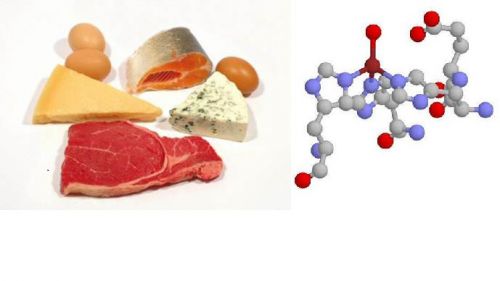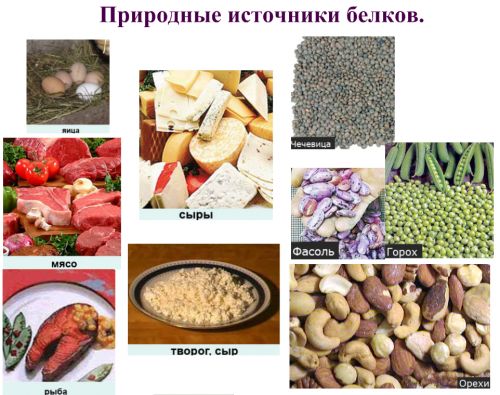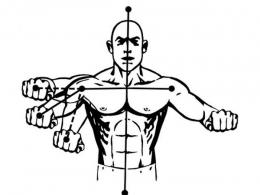What is protein for: all about the benefits of proteins
Since childhood, we have been hearing about the need for protein for the full development and functioning of our body. Friedrich Engels defined life as a form of existence of protein bodies. The well-known name of proteins is proteins (from Greek - the first, most important). Let's see what constitutes such a valuable element, what are its functions, and what are its main sources.
Proteins are special high-molecular organic compounds of alpha-amino acids. In order for the body to absorb them, during the passage of the protein through the gastrointestinal tract, the process of splitting proteins into amino acids occurs with the help of various enzymes. This process is quite lengthy and requires high energy costs.
The value of protein for the body
Protein is an important source of energy.
transport function. As you know, oxygen is carried by hemoglobin molecules - red blood cell proteins.
protective function. The immune system synthesizes proteins-antibodies that fight bacteria, viruses and toxins, and also increase the overall tone of the body.
contraction function. Many protein compounds are involved in the processes of muscle contraction and relaxation, and a lack of protein can provoke convulsions.
structural function. Together with other compounds, proteins are involved in the construction of body tissues, they are responsible for muscle growth, strong bones, teeth, healthy nails and hair.

What causes protein deficiency?
Carbohydrate addiction, overeating and weight gain.
Low elasticity of the skin and blood vessels.
Hormonal insufficiency.
Children have developmental delays.
Loss of muscle mass.
Hair loss.
Chronic fatigue.

How does protein affect our weight?
Surely you have heard more than once that proteins are an indispensable component of a healthy diet and an excellent tool for losing weight. The fact is that when digesting proteins, the body spends much more energy than digesting fats or carbohydrates. At the same time, proteins give an excellent feeling of satiety and allow you to speed up the metabolic processes. Protein prevents the loss of muscle mass, and, as you know, the more muscles in the human body, the more calories are spent on maintaining them, not in fats.
How much protein should be consumed?
A person leading a passive lifestyle will need 1 gram of protein per kilogram of body weight. A person of average activity (a couple of workouts per week), or someone who wants to lose weight, needs 1.2 grams of protein per kilogram of mass. If you train 5 or more times a week, then the amount of protein should not be lower than 1.6 grams per kilogram of body. For example, if you weigh 60 kg, then the amount of protein in your daily diet should be from 60 to 96 grams per day, depending on the degree of activity of your lifestyle. The strong half of humanity has more muscle mass, and metabolic processes are more active, so they need 15-20% more protein than women.

Protein Sources
Having figured out why we need protein and what is its daily norm, it is necessary to decide where to get this protein. The main sources of essential amino acids are animal products: meat, chicken eggs, fish, cottage cheese. In products of plant origin (cereals, flour, legumes), unfortunately, there is an incomplete set of amino acids, and some products do not contain them at all. At the same time, vegetable proteins have a lower digestibility compared to animal ones (60% versus 90% of amino acids of animal origin).
Some more tips
If you set yourself the goal of healthy weight loss, then you should remember the following facts:
Diets based on fruits and vegetables usually contain little to no protein, so long-term use can be harmful to health.
Since the protein is digested for a rather long time, it also lengthens the process of digestion of carbohydrates by the body, which allows you to reduce the overall level of the glycemic index and forget about the feeling of hunger for a long time.
Sufficient water is required for protein digestion. To prevent dehydration, you need to drink at least two liters of fluid per day.
With insufficient protein intake, intense physical activity can even be dangerous, since the muscles require regular replenishment.






